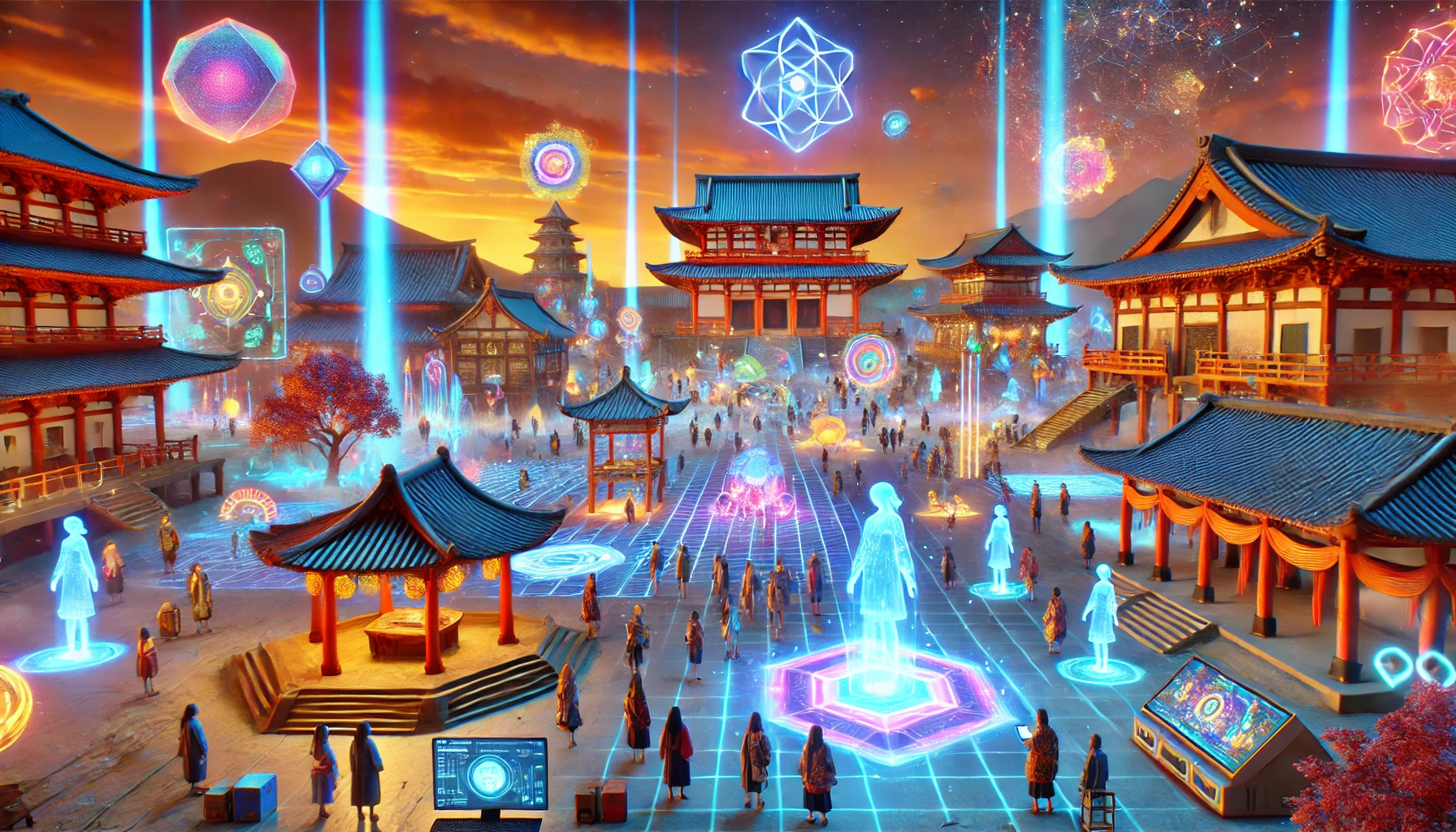Overcoming Virtual Challenges: Gamification’s Impact on Cultural Events in the Metaverse
The study examines the challenges and benefits of virtual cultural events in the metaverse, highlighting how gamification enhances user engagement and authenticity. While the metaverse offers vast opportunities, clear guidance and sensory features are essential for a more immersive and authentic experience.

A study conducted by researchers from the University of Zaragoza, investigates the complexities and challenges of hosting cultural events in the metaverse, with a particular focus on the role of gamification in enhancing user engagement. Published in the International Journal of Information Management, this study aims to empirically analyze the user experience during a cultural event held in the metaverse, a concept that has gained traction due to the pandemic-driven shift towards virtual experiences. The researchers adopted a mixed-methods approach, combining qualitative focus groups and a quantitative study to examine the potential benefits and drawbacks of this emerging technological domain.
The Promise and Pitfalls of the Metaverse
The metaverse, widely regarded as a technological revolution, offers a highly immersive and interactive platform that has the potential to replicate and extend in-person cultural events. This virtual space provides opportunities to reach wider audiences and engage with communities beyond physical boundaries, allowing individuals to experience new cultures from the comfort of their homes. However, despite its potential, the metaverse presents several challenges, particularly in conveying the authenticity of cultural events and maintaining user attention in an environment filled with distractions. The absence of comprehensive empirical studies on this topic motivated the researchers to investigate both the positive and negative aspects of virtual events in the metaverse, with a focus on the role of gamification in mitigating some of these challenges.
Feeling Lost in the Virtual World
The study began with an exploratory phase involving three focus groups. These groups were tasked with navigating a cultural event held in the metaverse, specifically a well-known traditional Spanish event, to assess their experiences and perceptions. Participants often reported feeling lost and confused in the virtual environment, as they struggled to focus on the key elements of the event. This confusion was compounded by the lack of clear instructions and guidance within the metaverse, which resulted in negative emotions such as frustration and anxiety. Many participants expressed that they were unsure of what to do or where to go within the virtual space, leading to a sense of disconnection from the event. Moreover, the study revealed that virtual environments are not always suitable for events with a high recreational component, such as concerts or festivals, where the physical presence and multisensory engagement play a crucial role in delivering an authentic experience.
Gamification as the Key to Engagement
Despite these challenges, the focus groups highlighted the potential of gamification as a tool to improve the virtual event experience. Gamification, which involves the use of game-like elements such as challenges, rewards, and interactive activities, helped participants navigate the metaverse more effectively and provided a sense of purpose within the virtual environment. By engaging with these gamified elements, users were able to focus their attention on the event and feel more connected to the experience. This led to a reduction in negative emotions and a more positive overall perception of the event. The findings from the focus groups informed the second phase of the study, which involved a larger quantitative analysis aimed at confirming the benefits of gamification in virtual cultural events.
The Quantitative Proof of Gamification
The quantitative study was conducted with 219 participants who experienced the same cultural event in the metaverse and subsequently completed a survey assessing their experiences. The results confirmed that users who engaged with gamified elements were better able to focus their attention, which in turn enhanced their ability to imagine the event and perceive its authenticity. When users experienced higher levels of attention, they were more likely to view the event as a genuine cultural experience, despite the digital nature of the metaverse. This increased perception of authenticity positively influenced their behavioral intentions, making them more likely to consider attending similar events in the future, either virtually or in person.
Overcoming the Sensory Gap for Real Success
However, the study also highlighted the inherent limitations of the metaverse in replicating the full range of sensory experiences that contribute to the authenticity of cultural events. While visual and auditory elements can be effectively reproduced in a virtual setting, other sensory aspects, such as the smells, tactile sensations, and physical interactions that define many cultural events, are more difficult to replicate. This sensory gap poses a significant challenge for event organizers who wish to create meaningful and engaging experiences in the metaverse.
The researchers concluded that while the metaverse offers exciting opportunities for virtual event virtualization, it is not without its drawbacks. The overwhelming amount of information and activities available in the metaverse can distract users from the core elements of the event, leading to a diminished experience. Gamification, however, provides a promising solution by helping users stay engaged and focused, ultimately improving their perception of the event’s authenticity. For cultural events to succeed in the metaverse, organizers must carefully design these experiences with clear guidance, multi-sensory features, and engaging activities to ensure that users can fully immerse themselves in the event.
- READ MORE ON:
- metaverse
- virtual space
- Gamification
- virtual experiences
- virtual environment
- FIRST PUBLISHED IN:
- Devdiscourse










